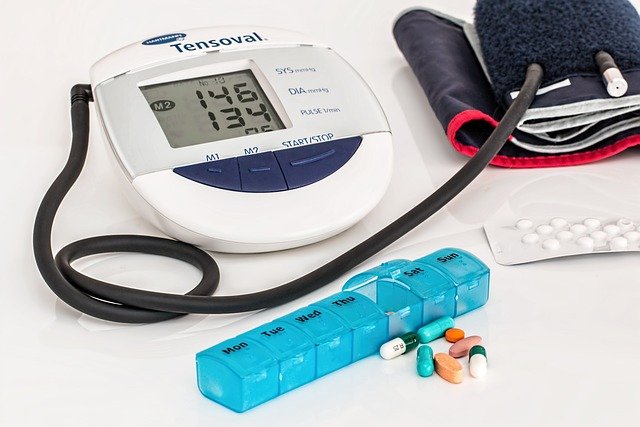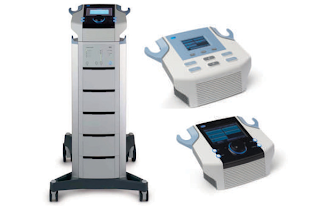Tips for Taking Care of Your Heart Health
For general health and well-being, heart health must be maintained. Here are five suggestions to maintain the health of your heart. You may promote a stronger, more robust cardiovascular system and lead a healthier, more active lifestyle by incorporating these heart-healthy habits into your daily routine. By following these tips, you can enjoy long-term benefits and reduce the risk of heart-related illnesses.
1. Follow a Heart-Healthy Diet
Omega-3 fatty acid-rich foods, such as walnuts and salmon, lower triglyceride levels and reduce inflammation, all of which are linked to heart health. Consuming high-fiber foods, such as oats and beans, also lowers cholesterol and enhances heart health in general. Consuming less sugar-filled beverages and staying hydrated with water promotes cardiovascular health by minimizing weight gain and preserving normal blood pressure. Eating a range of nutrient-dense foods guarantees that your heart gets the vitamins and minerals it needs, which improves cardiovascular health in general. Adopting these dietary practices can also promote a healthy lifestyle and result in long-term gains in heart health by lowering the risk of heart disease. STD Symptoms
2. Engage in Regular Physical Activity
Exercise on a regular basis is essential to heart health maintenance. Exercises that assist in reducing weight and enhance cardiovascular fitness include swimming, cycling, and brisk walking. A well-rounded fitness regimen may be supported, and overall cardiovascular health can be improved by including strength training activities twice a week. Frequent exercise has cardiovascular advantages as well as the potential to reduce stress, which is crucial for heart health. Exercise generates endorphins, which lessen anxiety and encourage happiness, both of which are linked to heart health. Regular exercise also lowers the risk of heart disease by enhancing insulin sensitivity and helping to control blood sugar levels. Creating a regimen that incorporates both strength training and aerobic activities guarantees a holistic approach to cardiovascular health and general wellness.
3. Manage Stress Effectively
Long-term stress can result in bad behaviors and elevated blood pressure, which are bad for the heart. It’s critical for cardiovascular health to find practical stress management strategies. Stress reduction methods include deep breathing techniques, yoga, and meditation. Taking up a hobby, hanging out with loved ones, and engaging in mindfulness exercises can all enhance emotional well-being. Effective stress management enhances the general quality of life and promotes a healthy heart. Furthermore, scheduling downtime for rest and self-care helps keep stress from building up and negatively affecting your health. Creating a solid support system and getting expert assistance when required can also improve stress reduction and long-term cardiac health.
4. Avoid Smoking and Limit Alcohol Consumption
Smoking destroys blood arteries and lowers oxygen supply to the heart, making it a significant risk factor for heart disease. Giving up smoking can greatly reduce the risk of cardiovascular problems and enhance heart health in general. Additionally, limiting alcohol consumption is important for heart health. Overconsumption of alcohol can raise the risk of heart disease, cause irregular heartbeats, and raise blood pressure. Adhering to recommended guidelines for alcohol consumption can help maintain a healthy heart. Choosing to avoid smoking and moderate alcohol consumption can also improve your overall health and reduce the risk of developing other related conditions, such as stroke and certain cancers. By adopting these lifestyle changes, you support your heart’s ability to function optimally and contribute to a healthier, longer life.
5. Keep Track Of and Manage Your Cardiovascular Health and Cholesterol
Heart health depends on routinely checking cholesterol and blood pressure. Elevated cholesterol and high blood pressure are important heart disease risk factors. Using health products like biometric gadgets and at-home testing kits may be a very efficient way to monitor these variables. These solutions provide you access to real-time data on your cardiovascular health and enable accurate and simple monitoring. Using these health items in addition to routine check-ups with your physician will help guarantee that your cholesterol and blood pressure stays within normal limits. If necessary, making lifestyle adjustments like eating better, exercising more, and taking prescription drugs can help successfully regulate these levels even further. Maintaining control over these variables promotes general health and heart health in the long run.
Conclusion
Maintaining your heart health proactively might have a long-lasting effect on your general well-being. The main ways to maintain cardiovascular health are to abstain from smoking, control your stress, eat a heart-healthy diet, exercise often, and monitor your blood pressure and cholesterol levels. The likelihood of cardiovascular illness can be considerably reduced and you can have a healthier, more active lifestyle by incorporating these practices into your everyday routine. Smoothie CCL






